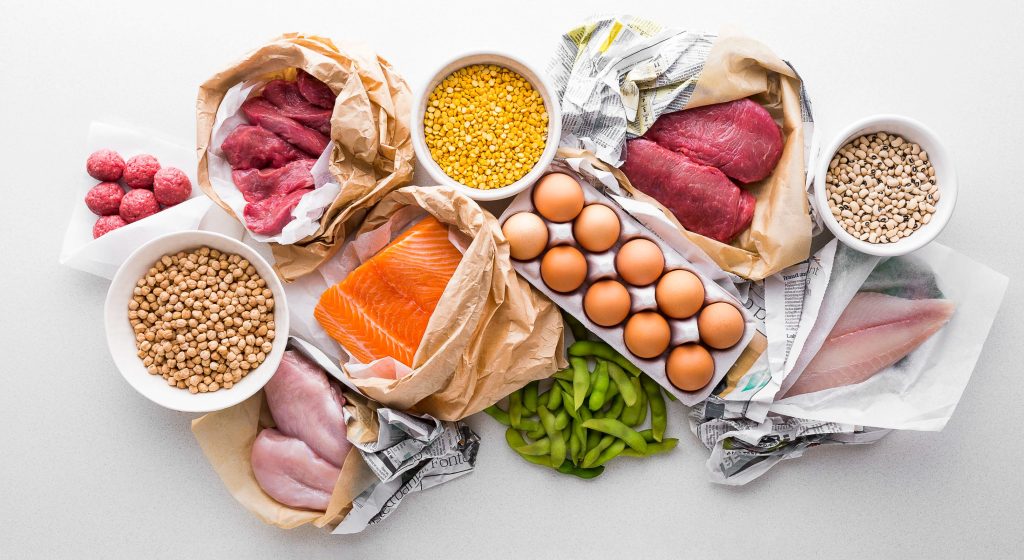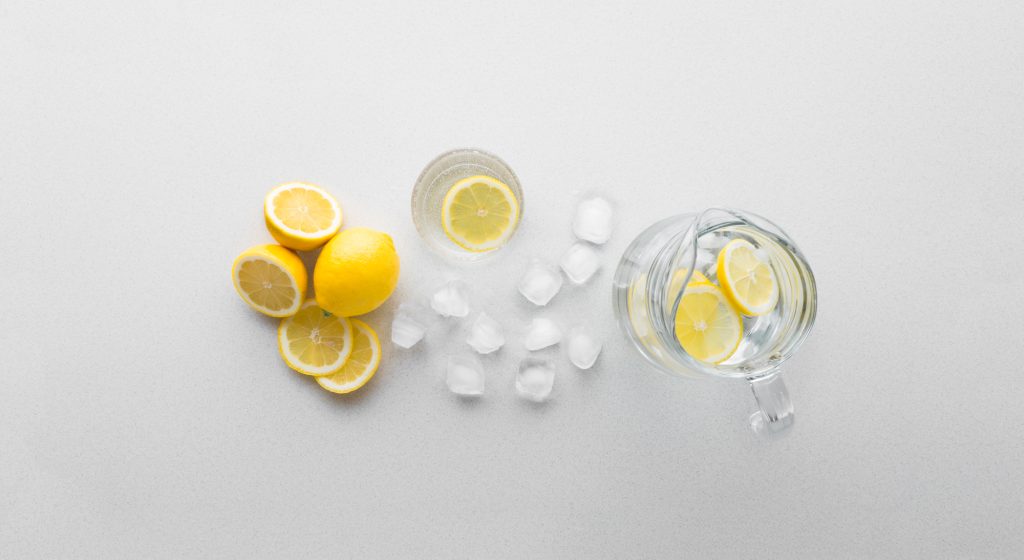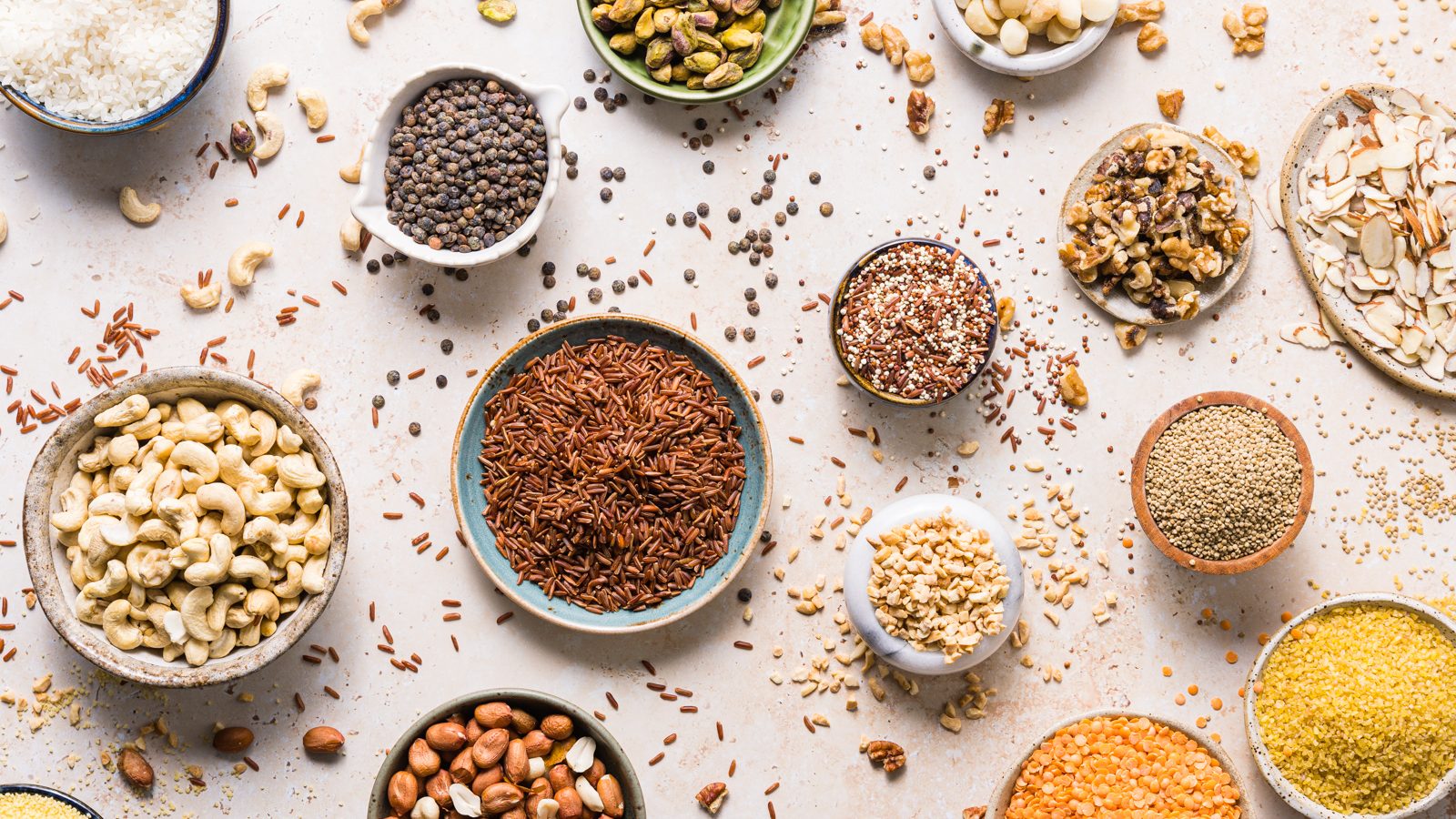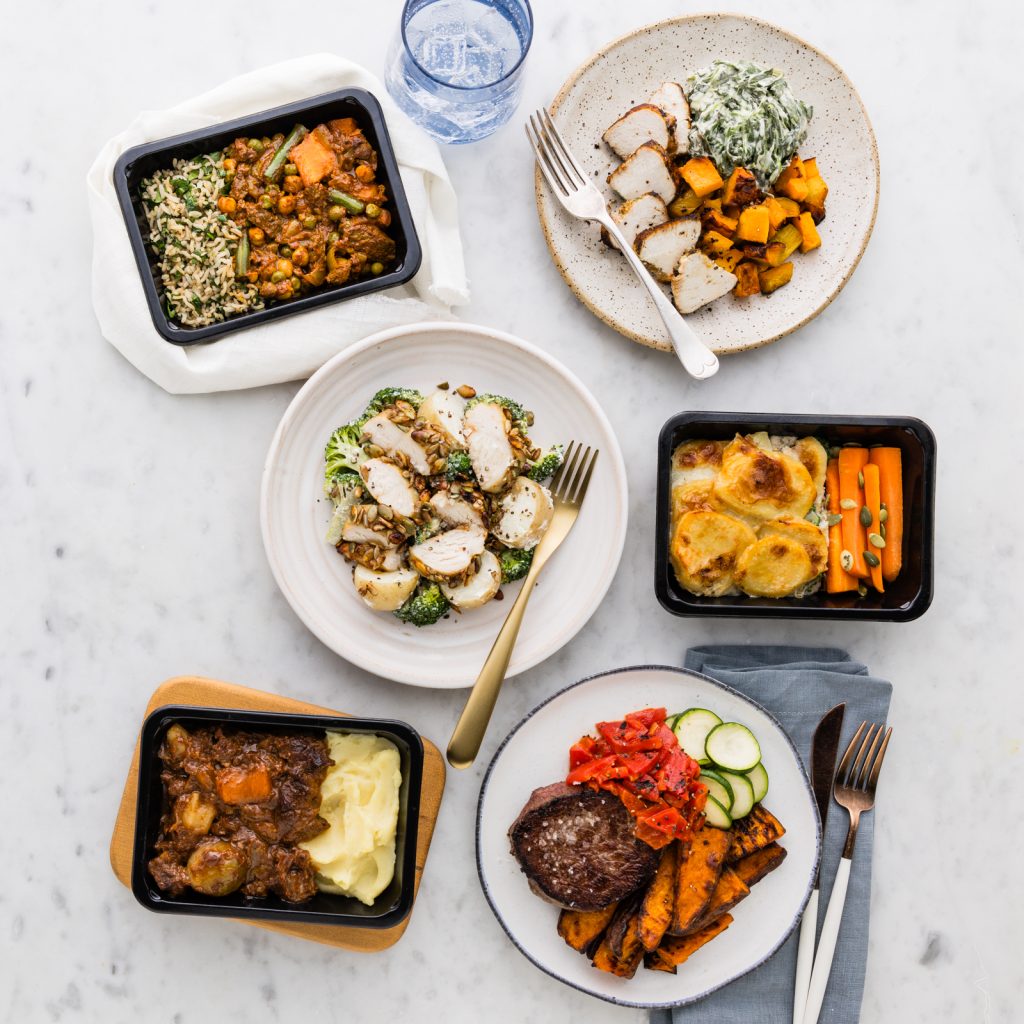If you’re taking a GLP-1 medication like Wegovy® you might be wondering: what should I eat?
The latest research shows that rapid weight loss can reduce your muscle mass, impact bone health and lead to a wide range of nutrient deficiencies. That’s why it’s crucial to work with your health professional on an approach that considers your personal nutrition needs and overall health.
These medications are designed to be used alongside lifestyle changes and not instead of them. Our Registered Dietitian Lily ‘lentil’ covers the key nutrients so that you can eat in a way that nourishes (not punishes) your body.

The information below is based on the latest guidelines and should be used as a guide.
Calories
Recommended amount
Your calorie needs will vary depending on your age, gender, starting body weight, and physical activity levels. They will also change as you lose weight which makes ongoing monitoring important.
As a rough guide, your calorie intake should generally be around 1,200-1,500 calories per day for women and 1,500-1,800 calories per day for men. If you are eating less than this, you need to work closely with your health professional due to the risks of undernutrition (1).
Tips
- The quality of the foods you eat matter just as much as your daily calorie intake.
- It’s important to focus on whole foods because these foods provide a package of nutrients like protein, dietary fibre, iron and calcium. Examples include vegetables, fruit, whole grains, legumes (chickpeas, lentils), lean protein sources (fish, poultry), and low-fat dairy products.
- Monitor your meals and track your food intake to ensure you are getting enough food in each day.
- If your hunger and interest in food is low, aim for small (more manageable) and frequent meals (2).
Remember
GLP-1 medications decrease your appetite (around 19-39% less calories) due to changes in your cravings and hunger levels which makes it difficult to meet your nutritional needs from diet alone (2). Talk to your health professional about ways to ensure you are getting enough calories in with a reduced appetite especially if you have long periods without food.
Protein
Recommended amount
Aim for at least 60 grams per day of high-quality protein, or up to 1.5 grams of protein per kilogram of body weight per day (1,2).
Tips
- Eat the protein foods on your plate first to ensure you are eating enough protein (at least 20-30g per plate).
- Include quality protein foods at each meal i.e. lean meats, chicken, fish, seafood, low-fat dairy products like milk, Greek yoghurt and cottage cheese, peas, edamame beans, lentils, tofu, nuts and seeds.
- Add a scoop of protein powder to boost smoothies and breakfast bowls.
- Seek advice from your health professional around meal replacement products like shakes or bars. These can be helpful to supplement dietary intake especially if your appetite is significantly affected (1).
Remember
Weight loss, whether achieved from lifestyle changes or medications, results in a loss of both fat and muscle tissue. Eating enough protein, along with resistance and strength-based exercise, will help to preserve your muscle and reduce any losses (1,2).
Fluids
Recommended amount
Aim to drink 2 – 3 litres per day.
Tips
- Fluids include water (plain or sparkling), low sugar drinks, tea/coffee, nutrient-dense beverages (such as low-fat dairy or plant-based, calcium-fortified dairy alternatives), veggie/protein-packed soups, smoothies (1).
- Limit alcohol because it doesn’t provide any benefit to your diet and can slow weight loss. It also may increase your appetite for less healthy foods and impact on food choices while drinking and the next day.
- Limit caffeine because it can make you need to use the toilet more often – making it even harder to meet your fluid requirements.
Remember
There is some evidence from animal studies suggesting that GLP-1s may reduce your thirst and therefore fluid intake.
Constipation is one of the common side effects of GLP-1s and drinking of plenty of fluids can help to manage it. When you have a reduced food intake your fluid intake is also reduced, which means that a lot more effort is required to meet your fluid requirements.


Carbohydrate
Recommended amount
The amount of carbohydrate you need will vary depending on your age, gender, starting body weight, and physical activity levels. It is recommended to consume at least 135g carbohydrate per day (females) and 170g carbohydrate per day (males) from whole foods and to limit added sugars in your diet (1).
Tip
- Whole grain carbohydrates provide dietary fibre which helps to prevent constipation – a common side effect of GLP-1. They can also help to manage your blood sugar levels.
- Whole grain carbohydrates include foods like brown rice, bulgur wheat, wholemeal couscous, oats, weetbix, whole grain breads, wholemeal pita. Carbohydrates also include vegetables, fruit and legumes too.
Remember
Very low-carbohydrate diets, like the keto diet are not recommended when taking GLP-1 medications as they may increase the risk of dehydration, electrolyte imbalances and limit the variety of foods in your diet (1).
Nausea is a common side effect of GLP-1s and may make you want to eat plain carbohydrate foods like rice/bread/pasta instead of whole grain options. This is fine while you get your symptoms under control, and you can widen the variety of your diet as your symptoms ease.
Dietary fibre
Recommended amount
Aim for 25-30g dietary fibre per day.
Tip
- Dietary fibre helps to keep your bowels regular and healthy, lowers blood cholesterol and slows the release of blood glucose.
- Whole grain carbohydrate foods like brown rice and bulgur wheat, vegetables and fruit (skins on), legumes (beans, chickpeas) and seeds (chia seeds, sunflower seeds) will help to contribute dietary fibre to your plate at each meal.
- It is important to gradually increase your fibre intake to prevent gut-related symptoms like bloating and constipation (1).
- If you are unable to meet your dietary fibre requirements, chat to your health professional around whether a dietary fibre supplement is an option.
Remember
To begin with, a lower fibre diet may be better for people who are experiencing gut-related symptoms due to the medication. If you have Irritable Bowel Syndrome (IBS) or any other gut symptoms it is important to talk to your health professional around how to gradually and safely increase your fibre intake.

Fat
Recommended amount
The amount of fat recommended each day really depends on your individual taste preferences and the overall quality of your diet.
The recommended amount per day is roughly 25 to 60 g fat per day (females) or 35 to 70 g fat per day (males) and ideally this comes from healthy fats (1).
Tips
- Choose healthy poly and monounsaturated fats such as nuts and seeds, avocado, nut butters, oily fish and olive oil due to the heart health benefits.
- Avoid overly rich, creamy, fried and high-fat foods to minimise potential digestive issues. A lower fat diet may be better tolerated for people experiencing gut-related side effects like bloating, heart burn or diarrhoea.
Remember
Fat plays a vital role in absorbing essential vitamins (A, D, E, and K) and promoting healthy gallbladder function during weight loss, potentially reducing the risk of gallstones (1).
We eat food not nutrients
At the end of the day, we should be thinking of weight loss medications as one tool in the toolbox!
To truly harness their benefits, they need to be paired with a balanced diet that hero’s plenty of nutrient-rich and gut-friendly foods. This will enhance the effectiveness of the medication and help you to develop sustainable habits and achieve your long-term health goals.
It’s always important to obtain advice from your healthcare provider on the benefits, risks, and side effects of any medication you are intending to take.
Ready to make every mouthful count?
Check out our GLP-1 Support Recipes – balanced, portion-controlled meals designed to help you stay nourished on your journey:
Explore our GLP-1 Support Meal Plan here


References
- Almandoz JP et al. Nutritional considerations with anti-obesity medications. Obesity (Silver Spring). 2024 Sep;32(9):1613-1631.
- Mozaffarian D et al. Nutritional priorities to support GLP-1 therapy for obesity: A joint Advisory from the American College of Lifestyle Medicine, the American Society for Nutrition, the Obesity Medicine Association, and The Obesity Society. Obesity (Silver Spring). 2025; 1-29.

